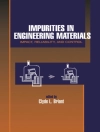This revised 2nd edition of Engineering Risk Management presents engineering aspects of risk management. After an introduction to potential risks the authors presents management principles, risk diagnostics, analysis and treatments followed by examples of practical implementation in chemistry, physics and emerging technologies such as nanoparticles.
Table of Content
From the Contents:
Preface: Is risk management only a matter of financial?
Introduction to engineering and managing risks
– ISO31000
– Hazards and risks
– Risk perception
– Objectives of engineering risk management (Risk Identification, Risk Analysis, Risk Handling, Risk Monitoring)
– Management techniques
Risk management principles
– Introduction to risk management
– Heinrich pyramid
– Incident/accident
– Risk modeling (static and dynamic)
Risk evaluation and prioritization
– PDCA (Plan Do Check Act) concept, Deming wheel
– Crisis management (example Katrina Hurricane)
– High Reliability Organizations and systemic risks
Risk diagnostic and analysis
– Introduction to risk assessment techniques
– HAZOP
– FMECA
– FTA / ETA
– Risk matrix
Risk treatment/reduction
– Prevention
– Protection
– Precautionary principle
– Risk mitigation; STOP (strategic, technical, operational and personal) principle
– Risk recording
– Risk management plan
– Business continuity plan
Event analysis
– How and why analyzing accidents
– Anatomy of an accident
– The causal tree method
– Examples
Examples of practical implementation of engineering risk management
– Chemistry field
– Physical hazards (lasers, cryogenics, ..)
– Emerging technologies (nanoparticles)
About the author
Thierry Meyer, Ecole Polytechnique Fédérale de Lausanne, Switzerland; Genserik Reniers, University of Antwerp, Belgium.












